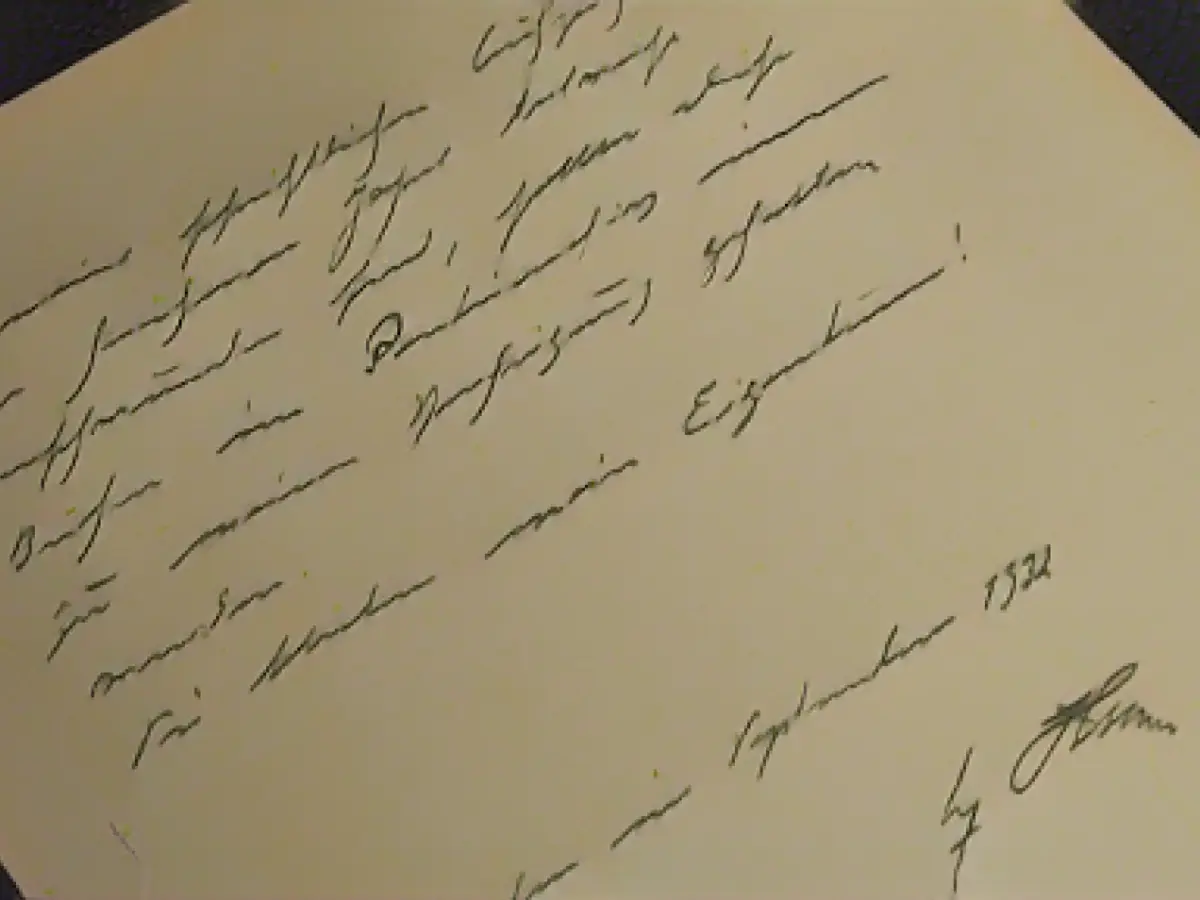After four decades, the infamous 'Hitler diaries' forgery from the 1980s has made its way to the Federal Archives in Koblenz, as announced by the Bertelsmann Group recently. Originating from the pages of "Stern" magazine, published by Gruner + Jahr (based in Hamburg), these alleged diaries of Adolf Hitler were later revealed to be forgeries.
Fifty-two of these diaries were handed over to the Federal Archives, which will carry out an archival inventory, digitize, and then make them available to the public as per the Federal Archives Act. Moreover, two files are now on display at the House of the History of the Federal Republic of Germany in Bonn, three at the Hamburg Police Museum, and one at the Fondation Cartier in Paris.
Federal Archives President Michael Hollmann emphasized the importance of this move. According to him, the forged diaries may have helped in trivializing the brutal crimes of National Socialism in the 80s. He expressed his gratitude for securing evidence of this challenging period in Germany's post-war history within the archives and identifying the forgeries.
Bertelsmann Group CEO, Thomas Rabe, believed that handing over these diaries would ensure proper archiving and enable transparent, scientific, and independent examination. A Bertelsmann spokesperson revealed that the diaries had been transported to Koblenz in early December, having been stored at Gruner + Jahr and, later, in armored cabinets at Bertelsmann.
Gruner + Jahr's 1980s media scandal, which involved the alleged 'Hitler diaries' published by "Stern," served as a potent reminder of historical authenticity's importance. The forgery had a significant impact on the public's perception of historical accuracy, leading to reevaluations in verification processes for historical research. The Federal Archives' acquisition of the forgeries now adds to their collection, providing valuable insights into post-war history and serving as an educational tool for historical studies.





